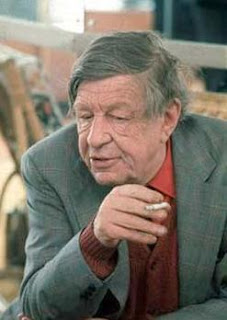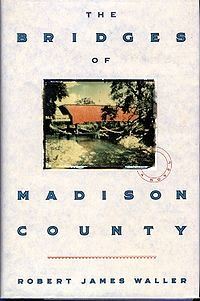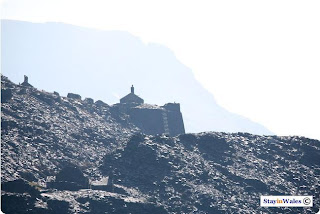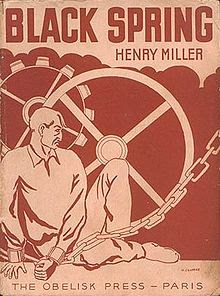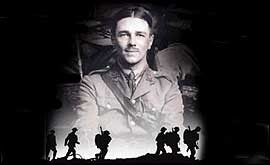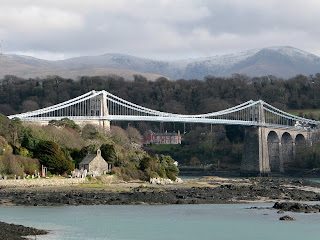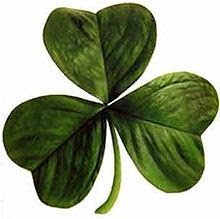for Stephen Hawking At the first Magicians' Convention the rules of behaviour were not clear
The Illusionist
At the first Magicians' Convention the rules of behaviour were not clear
The Illusionist
The long fingers reached into the old iron box
and pulled out the cylinder hat.
They closed the lid with a Big Bang!
And as they all crowded
around the table in that small room he
reached blindfolded over the rim and
into the depths of the black hat
ready to perform the first trick -
the white dove
illusion - but someone elbowing through
to the front stumbled over
the table and knocked the hat
and out of it everything spilled -
Miss Smith's fish-sauce shop!
Forgive us for we know not what we do.
The white rabbit, the coloured ribbons,
the goat, the sheep, the fluffy dice,
the mantel clock, the sphinx, the crocodile,
the turnip snedder, the potato chipper,
the circle line, the Punch and Judy man, the yeti,
the serpent, the dragon, the string of sausages,
not to mention all the black holes, and the crows,
and the ravens, the supernova, E=MC², and all the gods,
the giant tortoise, the turtle, the rainbow fish,
the grizzly bear, the griffin, the greyhound,
the iguana, the incandescent lamp, the hot tin roof,
the bearded iris, the jack-in-the-pulpit, the nocturnal jerboa,
the minotaur, the labyrinth, the woolly-haired llama,
the manx cat, the marmoset, the lute, the lotus-eater,
the marabou stork, the mastodon, the neanderthal man,
the chambered nautilus, the okapi, the prairie oyster,
the nonagon, the plantain, the praying mantis, the prairie dog,
the lion rampant, the rebus, the rocking horse, the tomahawk,
the elementary particles, the tongue-and-groove and
the toggle joints, the marijuana joints, the arrows of time,
the quivers of quarrels, the great brain of extraordinary power,
the antiparticles, the anthropic principle, the leaning towers,
the Chandrasekhar limit, the Hiroshima delta, Stonehenge,
Robinson Crusoe,
Vendredi, the cosmological constant,
the solitary reaper, the fascination of what's difficult,
the light-year and the light-second, crop circles, the neutrino,
the neutron, the nucleus, the proton, the quark, the snark,
the uncertainty principle, the
No Tresspassing sign, the grime,
the heavenly city, the metronomic moon, the road not taken,
the masonic triangle, Finnegans Wake, the minaret,
Pastor Niemöller, Abou Ben Adhem, Robert Burns, William Blake,
the mid-Atlantic trench, eugenics, the final will and testament,
the burning of the books, the company of the birds,
the windhover, the tempest, the clod and the pebble,
the promised garden, the lake isle of innisfree,
the terrestrial globe, the battle hymn of the republic,
the jungle book, the canterbury tales, the song of solomon,
the destruction of sennacherib, the connoisseuse of slugs,
the vanity of earthly greatness, ferric oxide, the tyger,
jodrell bank, the song of a man who has come through,
and all of it,
yes all of it,
and infinitely more of it, pouring and flying and tumbling
and rushing out
There's no calling it back!
for ever and ever
tumbling from the table
without end
Amen.
______
gw2010
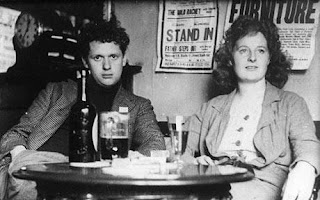 Dylan and Caitlin with liquid lunch
Dylan and Caitlin with liquid lunch If there's smoke there must be fire!
If there's smoke there must be fire!